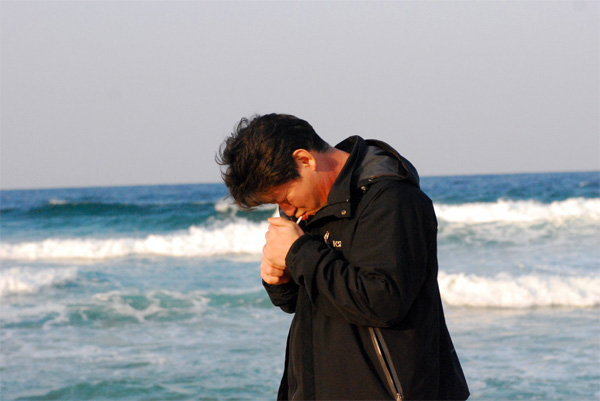 영어토론방 영어토론방 | Home>영어토론방 |
Culture Outdoor smoking ban
페이지 정보

본문

Government must do more to protect public’s health
The smoking rate of adult males, which had gradually fallen, rose back to 43 percent in the latter half of 2009. Health officials say the rebound is related with the worldwide economic slump, reaffirming cigarettes’ stress-easing effect.
It is not certain whether or how smoking helps to improve national or individual economic situations. What’s clear, however, is it will help a lot of unhappy smokers leave this troubled world for good far earlier than usual. The problem is it also can ruin a far greater number of lives of their family members, coworkers and even complete strangers.
So we welcome the health ministry’s decree Sunday that enables provincial and municipal governments to designate areas for an outdoor smoking ban and levy fines of up to 100,000 won ($85) on violators.
Sad to say, non-smokers will be wrong in anticipating the latest move will bring about much change in the attitudes of both tobacco lovers and local officials, given their entrenched neglect of other people’s pains and the public’s health so far. Currently, smoking is prohibited in most buildings and public facilities, but the ban is all but nominal, as smokers light up in toilets, staircases and any other corners they can find.
Little wonder they couldn’t care less about no-smoking signs at some outdoor spaces, such as parks, plazas, bus stops, zoos and even public schools and libraries.
The main culprit is smokers’ senselessness and selfishness. John Stuart Mill said as early as in the 19th century that individuals should be free to do as they please ``so long as they do not harm to anyone else.” Second-hand smoke is far more poisonous than the cigarette fumes inhaled by smokers, containing more than 250 noxious substances, of which 11 are carcinogens. In other words, people who exhale smoke in the presence of non-smokers are gradual, low-degree killers.
No less responsible are local governments, which have tended to drag their feet in administering strong anti-tobacco steps, not least because of the annual 7 trillion worth of income from cigarette consumption tax, or 10 percent of total tax revenues. Currently, a total of 86 provincial and municipal governments have designated areas for outdoor smoking bans. Among the most noticeable ― and pitiable ― exceptions are such metropolises as Incheon, Daegu and Gwangju as well as Gyeonggi and Gangwon provinces.
Voters should no longer condone the conflict committed by these bureaucrats who profit from an activity they are supposed to discourage.
The time is also long past for Koreans to see at least a group of courageous lawmakers who call for a drastic rise in tobacco tax, considering one of the world’s lowest cigarette prices in Korea is the very reason for its highest percentage of people who smoke among the 30 OECD member nations.
Smokers say higher taxes would impoverish the poor smokers even further, but the medical costs would far outweigh any savings from low tobacco prices.
One gets the sad impression, however, that the issue, like many others in this country, will not see much improvement unless there are fundamental changes in Koreans’ overall consciousness.
Excerpt from The Korea Times
Source : http://www.koreatimes.co.kr/www/news/opinon/2010/07/202_69750.html
이 글은「대학연합영어토론동아리」www.pioneerclub.com에서 제공하는 영어토론 정보입니다.
댓글목록
등록된 댓글이 없습니다.

